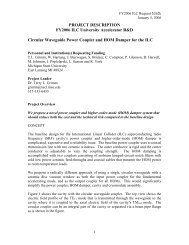order denying motions to suppress and dismiss - University of Illinois ...
order denying motions to suppress and dismiss - University of Illinois ...
order denying motions to suppress and dismiss - University of Illinois ...
- No tags were found...
You also want an ePaper? Increase the reach of your titles
YUMPU automatically turns print PDFs into web optimized ePapers that Google loves.
1<br />
2<br />
3<br />
4<br />
5<br />
6<br />
7<br />
8<br />
9<br />
10<br />
11<br />
12<br />
13<br />
14<br />
15<br />
16<br />
17<br />
18<br />
19<br />
20<br />
21<br />
22<br />
23<br />
24<br />
25<br />
26<br />
27<br />
28<br />
An <strong>of</strong>ficer present during the execution <strong>of</strong> the warrant<br />
must prepare <strong>and</strong> verify an inven<strong>to</strong>ry <strong>of</strong> any property<br />
seized. The <strong>of</strong>ficer must do so in the presence <strong>of</strong><br />
another <strong>of</strong>ficer <strong>and</strong> the person from whom, or from<br />
whose premises, the property was taken. If either one<br />
is not present, the <strong>of</strong>ficer must prepare <strong>and</strong> verify<br />
the inven<strong>to</strong>ry in the presence <strong>of</strong> at least one other<br />
credible person.<br />
The record indicates that Agent Greg Ross, who was not present during the<br />
execution <strong>of</strong> the warrant on March 29, verified on April 22, 2005, an inven<strong>to</strong>ry <strong>of</strong><br />
7<br />
the items seized. (Ex. 1 <strong>to</strong> Ct. Rec. 360 at Bates p. 50). To the extent there was<br />
any violation <strong>of</strong> Rule 41(f)(2), however, it does not require <strong>suppress</strong>ion <strong>of</strong> the<br />
items seized.<br />
Suppression is “rarely the proper remedy for a Rule 41 violation.” U.S. v.<br />
th<br />
Williamson, 439 F.3d 1125, 1132 (9 Cir. 2006), quoting United States v.<br />
Cal<strong>and</strong>ra, 414 U.S. 338, 348 n. 6, 94 S.Ct. 613 (1974)(Federal Rules <strong>of</strong> Criminal<br />
Procedure do “not constitute a statu<strong>to</strong>ry expansion <strong>of</strong> the exclusionary rule”).<br />
“Only a ‘fundamental violation <strong>of</strong> Rule 41 requires au<strong>to</strong>matic <strong>suppress</strong>ion, <strong>and</strong> a<br />
violation is ‘fundamental’ only where it, in effect, renders the search<br />
unconstitutional under traditional fourth amendment st<strong>and</strong>ards.” United States v.<br />
th<br />
Johnson, 660 F.2d 749, 753 (9 Cir. 1981). There are three circumstances under<br />
which evidence obtained in violation <strong>of</strong> Fed. R. Crim. P. 41 requires <strong>suppress</strong>ion:<br />
(1) the violation rises <strong>to</strong> a “constitutional magnitude;” (2) the defendant was<br />
prejudiced, in the sense that the search would not have occurred or would not have<br />
been so abrasive if law enforcement had followed the Rule; or (3) <strong>of</strong>ficers acted in<br />
“intentional <strong>and</strong> deliberate disregard” <strong>of</strong> a provision in the Rule. Williamson, 439<br />
7<br />
The “inven<strong>to</strong>ry” is distinguishable from the “receipt” that was served on<br />
Mr. Guerra on March 29. What Ross signed is titled a “Certification” <strong>and</strong> it was<br />
signed <strong>and</strong> subscribed before District <strong>of</strong> Idaho Magistrate Judge Larry M. Boyle<br />
on April 22, 2005.<br />
ORDER DENYING MOTIONS<br />
TO SUPPRESS AND DISMISS - 12


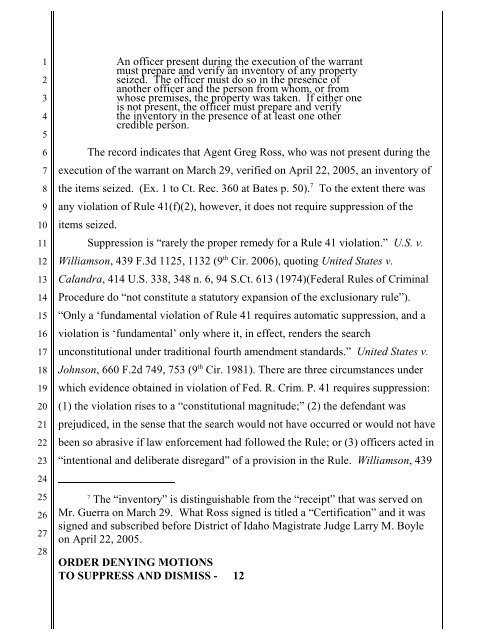
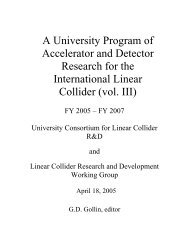
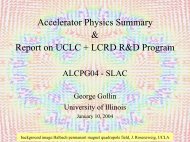
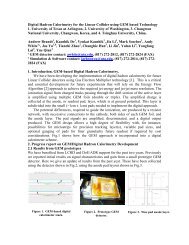
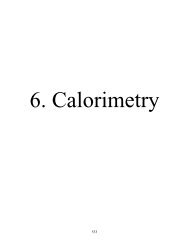
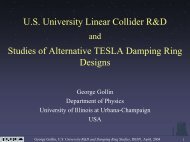
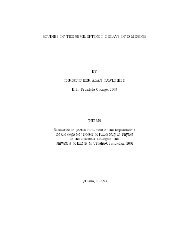
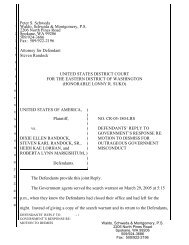
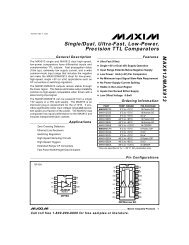
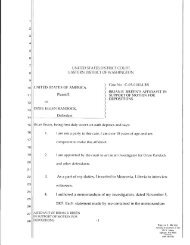
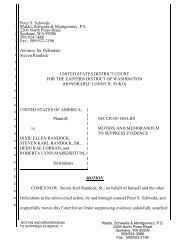
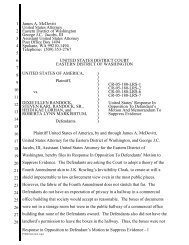
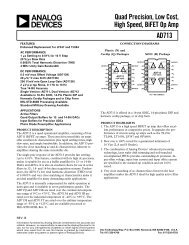
![Linear Collider [Accelerator] Overview](https://img.yumpu.com/33867705/1/190x143/linear-collider-accelerator-overview.jpg?quality=85)
